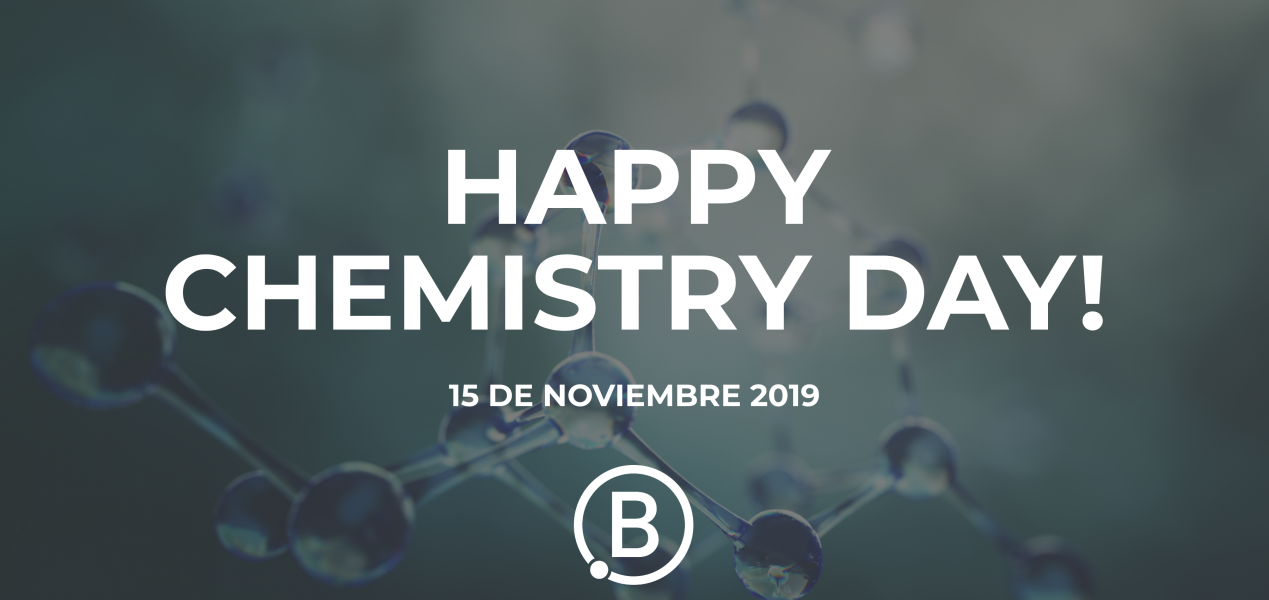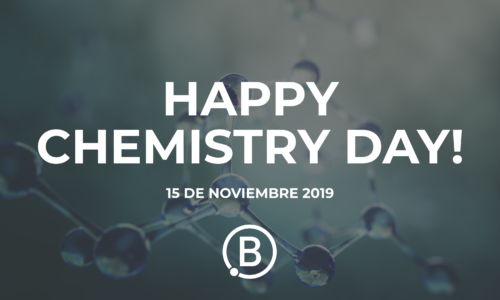To paraphrase Sheldon Cooper, though much to our chagrin, chemistry clearly isn’t as attractive as other scientific disciplines such as physics, with its black holes, string theory, and the possibility to time travel (even if only on the theoretical plane).
It seems that chemistry has always been the great unknown at the social level.
Nevertheless, chemistry is far more important than most would think.
While for many people it doesn’t go beyond mixing various “concoctions” in a laboratory, this perception of our sector is actually quite short-sighted.
What’s more, it seems most people have forgotten that the main scientific challenges of the past and future —such as sustainable development, the creation of new products, and technological advancements in general— largely depend on chemical science and its application in industry.
To elevate chemistry to the place it deserves, every year since 2002, we’ve been celebrating the Day of Chemistry on 15 November.
To elevate chemistry to the place it deserves, every year since 2002, we’ve been celebrating the Day of Chemistry on 15 November.
The origin of the Day of Chemistry
Although thematic days for each discipline are currently declared via BOE-published decrees, in the past it was the Catholic Church who was in charge of naming a patron saint for every profession.
The patron saint of chemists has historically been bishop Saint Albertus Magnus, whose day is celebrated on 15 November.
He was a German bishop who went down in the history of chemistry
The German bishop, a scholar in the XIII century, was known for his great wisdom.
He taught classes at the recently established University of Paris, founded in the same era, and also conducted scientific work at various Dominican convents in Germany.
He is considered to be the teacher and mentor of Saint Thomas Aquinas in addition to being one of the first Europeans to study and classify the works of Aristotle.
His encyclopedic systematisation of much of the knowledge and information that interested him was based on observing, describing, and classifying phenomena.
But Albertus Magnus is the patron saint of chemistry thanks to his research into botany, astronomy, geography and alchemy (the magical and medieval version of what is chemistry today).
In fact, using logical and consistent arguments, the German bishop not only managed to explain the theory that the earth is a sphere, but was also capable of isolating chemical elements, such as arsenic, for the very first time.
As is common in the Catholic Church, the day of his death, in this case 15 November, was chosen as the day to worship him.
On this same day, chemical science departments and faculties traditionally celebrate their patron saint’s holiday.
From Saint Albert to the Day of Chemistry
Secularisation has ended the custom of celebrating professional trade holidays on the day of the Catholic saint.
Instead, civil society has chosen to celebrate thematic days dedicated to each specific activity.
Ultimately, the aim is to take to the streets and show society what our work truly involves and how what we do affects the environment we live in.
For that very reason, in 2002, the Chemical and Society Forum requested that Spanish Government decree that 15 November of every year would be a special day dedicated to chemistry.
The decree was officially accepted and since then has been included in the calendar as the Day of Chemistry.
The events of the Day of Chemistry
Celebrating a day dedicated to our activity is far more important than it may seem.
Taking advantage of the media coverage generated by this day is essential for two reasons:
- It communicates to society that chemistry is essential to the development of current technology.
- It informs everyone on the contributions that chemistry has made to improving quality of life around the world.
The main reason for holding this event is to clearly share the social function of chemistry. To do this, official celebrations are held every year in a different location or town.
Thanks to the travelling nature of the event, every year different local and regional authorities, as well as the heads of chemists’ associations, universities, professional associations and companies recognised within the sector, get involved in the celebration.
The central focus of the Day of Chemistry commemorative events takes place during the presentation of the Chemistry Awards, whose aim is to identify chemical talent and the professional nature of specific scientists and personalities within the sector.
Following the events in Madrid (2015), Huelva (2016), Santiago de Compostela (2017) and Bilbao (2018), this year is a very special year for chemistry because the UN has declared 2019 the Year of the Periodic Table, and Palma de Mallorca has the honour of taking up the baton in this celebration.
Here at Grupo Barcelonesa, we would like to congratulate all the members of our large family on so special a day as the Day of Chemistry, because chemistry is basic and essential to everyone’s present and future.
Happy Day of Chemistry!


